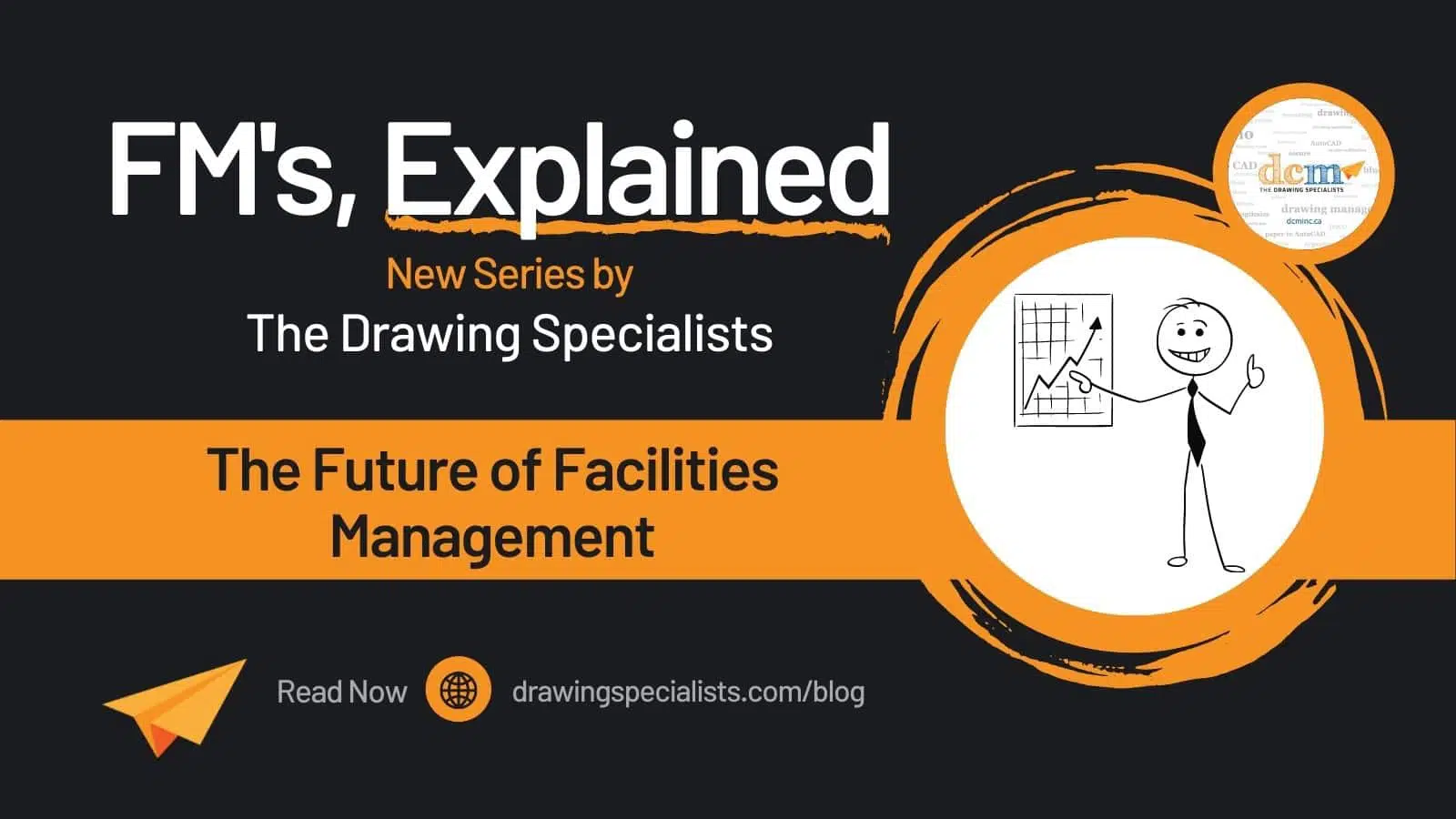We’ve had the opportunity to speak to Facilities Managers across all industries as part of our Facilities Manager series. They’ve shared their thoughts on what Facilities Managers do every day, and things people may not know about the profession.
The one thing we are certain of is that every day is different and the list of things on their to do list is endless. We work with a great deal of Facilities Managers and every day, the staff at DCM learns something different about the profession.
What will be different – the Future of Facilities Management
But we’re looking forward to seeing how it is going to change as well. From Covid having solidified the demand for ensuring the health and safety of employees and their facilities, to climate change increasing the need for healthier buildings, Facility Manager’s will be looking at buildings in a different way than their previous years. That doesn’t include all of the tech advances in recent years, from digital twins to 3D facility mapping, the FM profession is headed to new heights.
In fact, the demand for Integrated Facilities Management Global Integrated Facility Management Market is projected to grow from USD84.65 billion in 2020 to USD114.86 billion by 2026.
We asked Facilities Managers, their thoughts on the Future of Facilities Management. The good. The bad. And what’s next.
A very bright outlook for Facilities Management is in the cards
The future of FM is very bright and secure and is the closest to the information technology Industry. By 2023 FM profession is projected to be worth about $23 billion dollars. As people continue to seek physical spaces, for work, recreation and residential purpose, the ever increasing needs to manage Services and smart buildings. The needs and services of an FM is at all time high. Not to forget, we also offer health and safety management as well.
– Yomi Agbenro, Business Support Services Manager
The environment, health and safety of buildings will all be a big priority
I think it has to look different. I think you’ll see more facilities professionals look more closely at environmental services, occupational health and safety, air quality solutions. As long as you have buildings you will still need facilities. I also see our role expanding into home setups and providing advice. Infection control practices will increase and will become more everyday happenings.
Space planning and logistics will play a bigger role in managing staff that no longer are onsite every day, but when they come in need a space. Imagine driving an hour into the office for your once a week meeting, and you don’t have a safe space or any space to work at.
It will be interesting how they manage large buildings like casinos and stadiums.
– Danielle Paquette, Facilities Manager
Attracting top talent that has a well rounded skill set is also a topic of discussion as the profession evolves.
I am very concerned about the future. For decades people have focused on college and moved away from learning the trades. Now, so many great trades people are retiring leaving a huge void in the service industry. Facilities Management needs people who understand how a building operates and not just managing the budget.
Many people entering the Facilities Management field have college degrees but do not understand things such as how an air conditioner works, theory behind wiring inside a building, how the plumbing systems handles water and waste, etc.
Employers are using “Director of Facilities” or “Director of Maintenance” titles to attract employees. People with only basic maintenance skills have this title which takes away from the Facilities Management profession.
– Michael Walton, Facilities Manager
But change in the future of Facilities Management is inevitable
Post pandemic we will see a new layer of accountability not so dissimilar to water quality testing, and the public will demand both a rigorous approach and full disclosure and accountability. Boards will have to report on air quality, deep cleaning and other measures in much the same way in the last decade we upped the standards for lead testing in our water. We will have to add the current construction protocols or a modified version thereof into new agreements. We will spend more time in addressing compliance while trying to maintain the same schedules that we have had in the past.
– Lewis Morgulis, Managing Partner, Planning
How do you think the future of Facilities Management will look? Join the conversation with us on DCM’s social media. You can find us on LinkedIn, Facebook, Twitter and Instagram. We’re always eager to hear your thoughts and to help with your drawing conversion and management.
